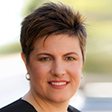7 Questions to Ask Before Hiring a Financial Professional
You should interview several people to make sure you find the best match for you.

Profit and prosper with the best of Kiplinger's advice on investing, taxes, retirement, personal finance and much more. Delivered daily. Enter your email in the box and click Sign Me Up.
You are now subscribed
Your newsletter sign-up was successful
Want to add more newsletters?

Delivered daily
Kiplinger Today
Profit and prosper with the best of Kiplinger's advice on investing, taxes, retirement, personal finance and much more delivered daily. Smart money moves start here.

Sent five days a week
Kiplinger A Step Ahead
Get practical help to make better financial decisions in your everyday life, from spending to savings on top deals.

Delivered daily
Kiplinger Closing Bell
Get today's biggest financial and investing headlines delivered to your inbox every day the U.S. stock market is open.

Sent twice a week
Kiplinger Adviser Intel
Financial pros across the country share best practices and fresh tactics to preserve and grow your wealth.

Delivered weekly
Kiplinger Tax Tips
Trim your federal and state tax bills with practical tax-planning and tax-cutting strategies.

Sent twice a week
Kiplinger Retirement Tips
Your twice-a-week guide to planning and enjoying a financially secure and richly rewarding retirement

Sent bimonthly.
Kiplinger Adviser Angle
Insights for advisers, wealth managers and other financial professionals.

Sent twice a week
Kiplinger Investing Weekly
Your twice-a-week roundup of promising stocks, funds, companies and industries you should consider, ones you should avoid, and why.

Sent weekly for six weeks
Kiplinger Invest for Retirement
Your step-by-step six-part series on how to invest for retirement, from devising a successful strategy to exactly which investments to choose.
You've worked hard and saved money for retirement. The last thing you need is to lose the money in a volatile stock market or with an investment professional that may not understand your unique situation. You need someone who understands the market and will work with you to create a plan that reaches your financial goals.
Don't hire the first person who is recommended to you.
Take time to interview several financial professionals before making a decision of who will invest your money. Below are seven questions you should consider asking them. If anyone can't (or won't) answer questions to your satisfaction, he or she may not be the best match.
From just $107.88 $24.99 for Kiplinger Personal Finance
Become a smarter, better informed investor. Subscribe from just $107.88 $24.99, plus get up to 4 Special Issues

Sign up for Kiplinger’s Free Newsletters
Profit and prosper with the best of expert advice on investing, taxes, retirement, personal finance and more - straight to your e-mail.
Profit and prosper with the best of expert advice - straight to your e-mail.
1. Can I ask you a few questions?
Seems ridiculous to ask this question, but if they're not open to talking to you about how they operate their business, their training and background or investment style, they may not be open to answering questions about how your money is invested. It might be better to find someone else who is willing to answer your questions.
2. What's your investment philosophy?
You're investing your future with this company and person, so it's important you can talk to them in terms you both understand. If they put money in what seem like complicated investments, you will likely have an uphill battle to decipher the basic elements of your account. It's better to have someone who has a similar philosophy to your own and can explain what they're doing in a way that makes you comfortable.
3. Are you fully licensed?
If they're only licensed for insurance, it's likely they will only recommend insurance products in a financial plan. While that may make sense for your portfolio, it may not be the best option. When a financial adviser is fully licensed it means they have securities and insurance licenses and are required to have ongoing training. For example, I am fully licensed, which means I have Series 7 and 66 and am allowed to sell nearly any investment. I also have a life insurance license, which allows me to sell life, long-term care and annuities.
4. What kind of continuing education do you practice?
It's important to be constantly learning, especially in this field that can change with the stock and bond markets as well as the law. As a fully licensed professional, I have the Accredited Asset Management Specialist (AAMS) designation, which requires that I have tenure in the industry, additional continuing education and subscribe to a code of ethics.
5. How do you get paid?
The financial industry does a good job of confusing people about how we get paid but that is not our intention. In fact, if you're confused at the answer you get to this question, that person may not be right for you. As a fully licensed financial adviser, I typically get paid in one of three ways, depending on the services I provide to the client: via a commission for the products I sell, a money management fee as a percent of assets under management or a financial planning fee for creating a plan you will execute.
6. How do you invest in yourself?
It's my belief and practice that I have to take time for myself and my family so that I can best serve my clients. If I am always working, it can feel like I can hardly breathe, and I am not enjoying my work. Taking breaks and vacations helps reset and renew so that I can truly focus on what I love—helping my clients reach their financial goals.
7. Why did you become a financial professional?
The answer to this question tells you how passionate they are about their work and connects you to them in a personal way. I became a financial professional to help women understand money and investments in a way that wasn't available when I was growing up. I want you to have education about what's right for your personal financial future. That truly matters to me.
When I sit down with prospective clients, I want to get to know them and I want them to know me. Whether you work with me or someone else, it's important that you are comfortable and understand what's happening with your investments. You've worked hard and your money should work for you in ways that make sense for your financial goals. Don't be afraid to ask questions before hiring a financial professional.
Shanna Tingom is the co-founder of Heritage Financial Strategies. Her specialty is working with female entrepreneurs, business leaders and individuals experiencing life transitions.
Shanna Tingom is a Registered Representative, securities offered through Cambridge Investment Research, Inc., a broker-dealer, member FINRA/SIPC., Investment Advisor Representative, Cambridge Investment Research Advisors, Inc., a Registered Investment Adviser.
Cambridge and Heritage Financial Strategies are not affiliated.
Profit and prosper with the best of Kiplinger's advice on investing, taxes, retirement, personal finance and much more. Delivered daily. Enter your email in the box and click Sign Me Up.

Shanna Tingom is a registered representative, securities offered through Registered Representatives of Cambridge Investment Research, Inc., a Broker/Dealer, member FINRA/SIPC. Advisory services offered through Cambridge Investment Research Advisors, Inc., a Registered Investment Advisor. Cambridge and Heritage Financial Strategies are not affiliated.
-
 Over 65? Here's What the New $6K Senior Bonus Deduction Means for Medicare IRMAA
Over 65? Here's What the New $6K Senior Bonus Deduction Means for Medicare IRMAATax Breaks A new deduction for people over age 65 has some thinking about Medicare premiums and MAGI strategy.
-
 U.S. Congress to End Emergency Tax Bill Over $6,000 Senior Deduction and Tip, Overtime Tax Breaks in D.C.
U.S. Congress to End Emergency Tax Bill Over $6,000 Senior Deduction and Tip, Overtime Tax Breaks in D.C.Tax Law Here's how taxpayers can amend their already-filed income tax returns amid a potentially looming legal battle on Capitol Hill.
-
 5 Investing Rules You Can Steal From Millennials
5 Investing Rules You Can Steal From MillennialsMillennials are reshaping the investing landscape. See how the tech-savvy generation is approaching capital markets – and the strategies you can take from them.
-
 When Estate Plans Don't Include Tax Plans, All Bets Are Off: 2 Financial Advisers Explain Why
When Estate Plans Don't Include Tax Plans, All Bets Are Off: 2 Financial Advisers Explain WhyEstate plans aren't as effective as they can be if tax plans are considered separately. Here's what you stand to gain when the two strategies are aligned.
-
 Counting on Real Estate to Fund Your Retirement? Avoid These 3 Costly Mistakes
Counting on Real Estate to Fund Your Retirement? Avoid These 3 Costly MistakesThe keys to successful real estate planning for retirees: Stop thinking of property income as a reliable paycheck, start planning for tax consequences and structure your assets early to maintain flexibility.
-
 I'm a Financial Planner: These Small Money Habits Stick (and Now Is the Perfect Time to Adopt Them)
I'm a Financial Planner: These Small Money Habits Stick (and Now Is the Perfect Time to Adopt Them)February gets a bad rap for being the month when resolutions fade — in fact, it's the perfect time to reset and focus on small changes that actually pay off.
-
 Social Security Break-Even Math Is Helpful, But Don't Let It Dictate When You'll File
Social Security Break-Even Math Is Helpful, But Don't Let It Dictate When You'll FileYour Social Security break-even age tells you how long you'd need to live for delaying to pay off, but shouldn't be the sole basis for deciding when to claim.
-
 I'm an Opportunity Zone Pro: This Is How to Deliver Roth-Like Tax-Free Growth (Without Contribution Limits)
I'm an Opportunity Zone Pro: This Is How to Deliver Roth-Like Tax-Free Growth (Without Contribution Limits)Investors who combine Roth IRAs, the gold standard of tax-free savings, with qualified opportunity funds could enjoy decades of tax-free growth.
-
 One of the Most Powerful Wealth-Building Moves a Woman Can Make: A Midcareer Pivot
One of the Most Powerful Wealth-Building Moves a Woman Can Make: A Midcareer PivotIf it feels like you can't sustain what you're doing for the next 20 years, it's time for an honest look at what's draining you and what energizes you.
-
 I'm a Wealth Adviser Obsessed With Mahjong: Here Are 8 Ways It Can Teach Us How to Manage Our Money
I'm a Wealth Adviser Obsessed With Mahjong: Here Are 8 Ways It Can Teach Us How to Manage Our MoneyThis increasingly popular Chinese game can teach us not only how to help manage our money but also how important it is to connect with other people.
-
 Looking for a Financial Book That Won't Put Your Young Adult to Sleep? This One Makes 'Cents'
Looking for a Financial Book That Won't Put Your Young Adult to Sleep? This One Makes 'Cents'"Wealth Your Way" by Cosmo DeStefano offers a highly accessible guide for young adults and their parents on building wealth through simple, consistent habits.